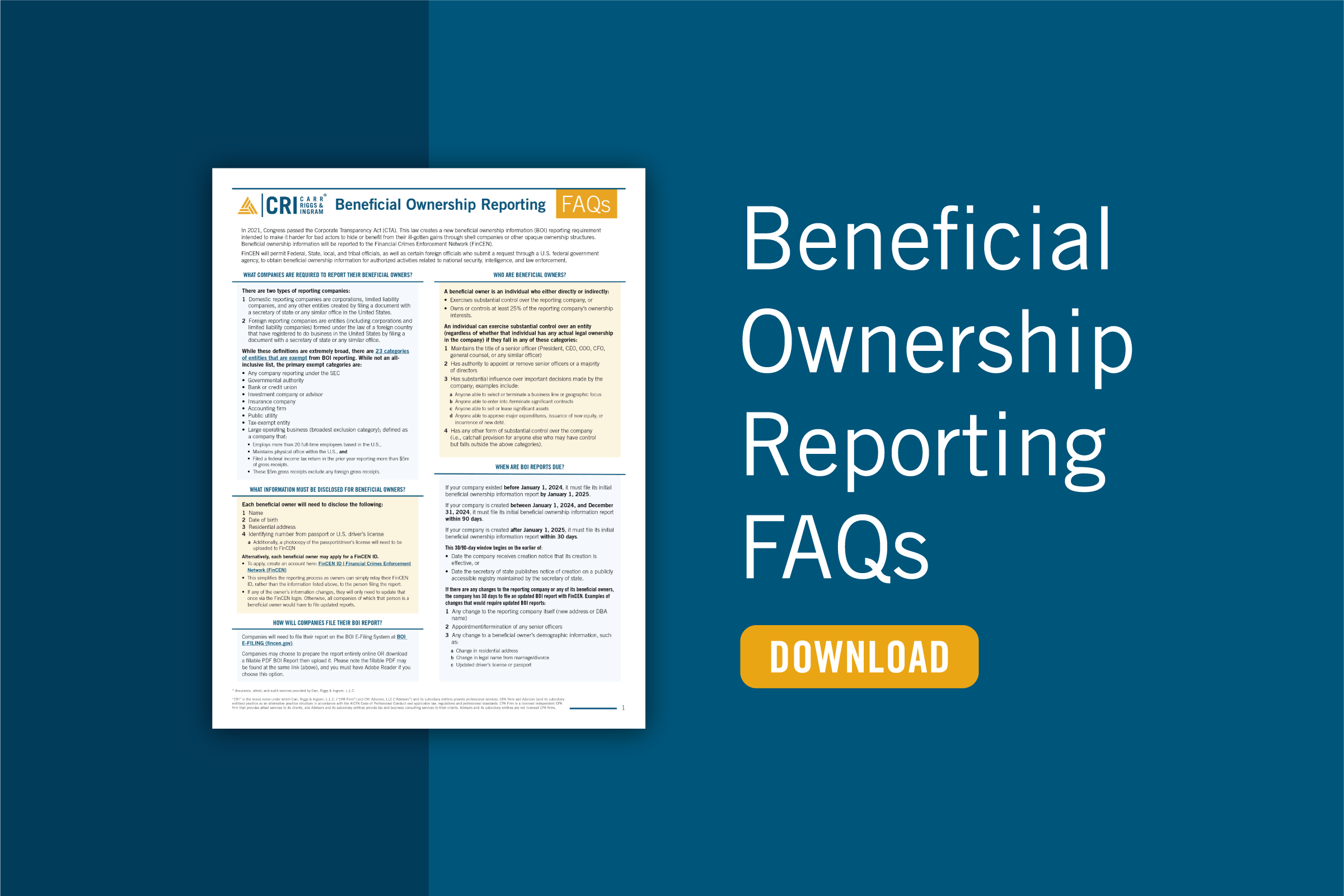Forensic vs. Annual Audits*: Taking a Proactive Approach to Protecting Your Business
- Contributor
- Ben Kincaid
Feb 27, 2020
Forensic audit* seems to be a buzzword that is circling in today’s business environment. “We need a forensic audit!” or, “Why didn’t our annual audit catch this?” are some common phrases that forensic and fraud audit professionals hear quite often. There are also many misconceptions surrounding forensic audits and how they differ from an organization’s annual audit. Well, what is a forensic audit? How can it be used? How is it different from your annual audit? To answer these questions, we need to address what a forensic audit is not.
What a Forensic Audit Isn't
Let’s start with the fact that a forensic audit is not actually an audit. An audit essentially provides assurance that the balances reported on the financial statements are materially correct. A common misconception is that audits verify 100% of the balances and transactions within the financial statements. This is not actually true as audits often only consider material balances and, generally, audits only look at a sample of transactions. Another misconception with audits is that they are geared to detect and prevent fraud. This way of thinking is also not correct. According to the Association of Certified Fraud Examiners (ACFE), annual audits typically only detect approximately 4% of all frauds. This does not mean that your annual audit is not worthwhile, as it does serve a valuable purpose, just a different purpose than is usually considered. Annual audits assure lenders, investors, or the public of your financial position. To put it another way, your annual audit is similar to you going to your primary doctor on a yearly or regular basis for a physical or well check. A forensic audit is akin to getting a specific medical test to ensure nothing is amiss, like enduring a CT scan.
A forensic audit is also not an audit in that no opinions are generally made on the financial statements. Forensic audits generally have a defined scope of what is being reviewed and assessed. Examples can include determining employee misappropriation, examining selected departments for internal control purposes, assisting with business disputes in a litigation setting, and determining employee or grantee compliance with certain policies, procedures, or provisions. Forensic audits generally look at a higher number of transaction samples, influencing factors on those transactions, and they can involve extensive interviews. As such, forensic audits are more technically referred to as forensic examinations.
Being Proactive is the Key to Health
A prevalent misconception is that forensic examinations are limited to when suspicious activities are suspected, or for use in litigation. While these are common uses of forensic examinations, they are not the only uses. Since organizations and the people within organizations are dynamic, organizations are encouraged to have limited forensic examinations performed on high-risk areas within their company. High-risk areas can include finance, purchasing, credit cards, cash collections, and sub-recipient or grant monitoring. These areas can be at an even higher level of risk if policies and procedures have remained unchanged for several years or if there is a lack of oversight by a board or agency overseeing a grant.
With your health, you don’t want to wait until poor health symptoms show up to be seen by a physician—you ideally want to be proactive with your health. You should take a similar approach to your organization’s fraud health. Most people would rather be responsible for finding a fraud versus waiting for or being embarrassed when a fraud scheme blows up. A good rule of thumb to always consider if you have more questions than answers about a particular financial issue, then it may be about time to seek a forensic examination.
Your Provider Matters
Finally, you want to ensure that you select the right fraud professional. If you need neurosurgery, you want the best neurosurgeon and not the best podiatrist, right? Usually, a firm or individual that primarily focuses on taxes or audits will not have the experience, knowledge, or resources to complete a forensic examination properly. With any firm or individual, make sure that they have proper forensic credentials (e.g., CFE and CFF) and recent, related experience with the area or issue that your organization is facing. At CRI, we have dedicated and credentialed forensic teams that have extensive experience in forensic investigations and fraud risk assessments. For help determining whether or not a forensic examination is right for your organization, contact us today.










































































































































































































































































































































































































































































